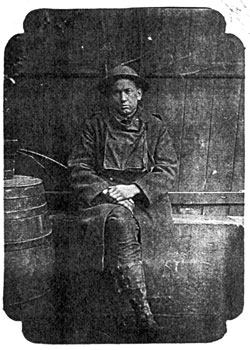Harold Innis: An Intellectual at the Edge of Empire
Harold Innis died in 1952, more than a half century ago. He was never a man of the Left; in the 1930s he labeled the CCFers “hot gospellers.” Do we really have anything to learn from him now?
Actually, we’ve already learned a lot. Innis, as economic historian, wrote about Canada in the 1920s and 1930s in two great books on the fur trade and the cod fisheries (grubby rather than grabby topics, I grant) in which he laid out the political economy of Canada, providing the material base for understanding the emergence of Canadian capitalism. His conclusion to the fur-trade volume is arguably still the best essay there is in Canadian studies in English, helping us to understand why Canada exists separate from the United States, why its economy is immature compared to that of the United States and why Canada has a distinctive political culture. Innis created what came to be called the “staple approach,” about an economy that specialized in exporting natural resources, or staples, to the imperial metropolis.
A Distinctive School of Political Economy
These writings of Innis became the core of a distinctive school of Canadian Political Economy. In the years after the Second World War, economic history turned quantitative; orthodox economics, the better to purify the paradigm, expelled political economy, and Innis was there for the taking when the New Left emerged in the 1960s to transform the old political-economy paradigm into the New Canadian Political Economy. When dependency theory became the rage, Cy Gonick made the telling point that Canada alr eady had its own variant of dependency theory in the staples approach. The New Canadian Political Economy, in its turn, was the intellectual basis for left nationalist politics in Canada, particularly of the Waffle Movement within the New Democratic Party.
The New Canadian Political Economy has itself become a bit long in the tooth and to read the scholarly journal Studies in Political Economy is to see how it has flourished and greatly widened its range beyond its origins. Still, it is striking the extent to which the Canadian economy remains driven by commodity exports, with the Canadian dollar classified as a petrocurrency, while the petro-politics of Alberta pushed us into free trade with the U.S., with its gluttonous appetite for resources, and continue to transform national politics. CAW economist Jim Stanford, one of the best of Canada’s younger economists, has recently rediscovered Innis and the staple approach.

In the 1940s and until his death, Innis turned his attention to the study of civilizations, and of empires – of how they were molded by the prevailing media of communication – with Innis becoming, along with Marshall McLuhan, one of the founding gurus of the new field of communications studies. In a life cut short, he published one great book, Empire and Communications, and wrote numerous essays with telling titles like “The Bias of Communication” and “A Plea for Time,” some of them characterized by trenchant, stinging critiques of American militarism and of the American empire in Canada. The new post-Innis generation of political economists read this later work of Innis and enjoyed his powerful insights into American imperialism, and loved to quote him. There were occasional forays into Innis’s terrain, notably by University of Toronto political scientist Ron Diebert in his Parchment, Printing, and Hypermedia: Communication of World Order Transformation (1997), but there was no sustained building on his work by scholars in Canada – or elsewhere for that matter.
One can only urge today’s generation to read Innis on the media in the original. He was, in his time, as Noam Chomsky is now, sui generis. We cannot escape the stultifying embrace of the media, which threaten to drown us all; we can only attempt to resist them through understanding their pervasive bias upon how we live and think, their persistent capacity to warp and spin.
In the Shadow of the American Empire
Just when Innisian studies seemed to be at a historic low, a major new study has appeared that offers a fresh perspective on Innis – and, it turns out, on those of us who toil in the world of ideas in the shadow of the American empire. Twenty-five years ago, John Watson wrote a thesis on Innis for his doctorate in political science from the University of Toronto. It should have been published, but Watson was preoccupied with work in foreign aid, first with World University Service of Canada and then with CARE Canada; he is now president and chief executive officer of the latter. A few years ago, Watson took off just enough time to turn an already excellent thesis into a brilliant biography of Innis, published by University of Toronto Press, entitled Marginal Man: The Dark Vision of Harold Innis.
For Watson, Innis is, above all, not a political economist and then a communications theorist, but an intellectual at the edge of empire with the audacity to believe that the margin can become a centre for the flowering of intelligence. As Watson puts it: “His theory moved marginal man, particularly the ‘colonial’ intellectual, to the centre stage of Western culture.” The specificity of Innis’s margin is that of a settler colony where the culture is an “extension of Western civilization,” but “an anaemic variety of Western culture.” The colony, Canada, has no more than moved in formal terms from colony to nation, when Innis sees the dark side of it being turned, back, into a neo-colony. He fears that the increasing efficacy of modern metropolitan media is making indigenous intellectual creativity at the margin less possible. His vision, like George Grant’s, foresees Canada’s failed potential, and sees that fate as a manifestation of the increasing threat to the intellectual, not only in Canada but generally. At its darkest, he envisages the modern intellectual, as in the ancient aphorism, having “insight into much and power over nothing.”
Indeed, throughout Innis’s writings runs the theme of the role of the intellectual, and Watson puts this in high relief. Influenced by the classicists, who still occupied a prominent place at the university, Innis was preoccupied with the dialectic between intelligence, or knowledge, and power. For Innis, Watson tells us, there was a fundamental contradiction between intelligence and power – intelligence being concerned with the “continued pursuit of truth,” while power “demands a ‘truth’ of the moment to act on.” “That is why,” Watson tells us, “Innis viewed power as always anathema to intelligence.” All this before Michel Foucault had even begun to write!
Watson has written an intellectual biography of Innis grounded in the material and cultural circumstances of Canada as hinterland – hinterland of Britain, and then of the United States. The dust jacket properly informs us that it is not only a biography of a great scholar but a work of scholarship in its own right. The message, the moral, the challenge, the lesson for Canadian scholars seems clear: More is possible, and necessary, than metropolitan mimicry, than merely putting Canadian content into the dominant paradigms. Building on Innis, left scholars did create the New Canadian Political Economy. Perhaps the time has come for today’s Canadian left scholars to take on the serious study of the United States and its empire. As the United States continues its descent into madness, we should heed the advice of the African-born Columbia University scholar, Mahmood Mamdani: “There can be no independence without independent thought.”
This article appeared in the May/June 2007 issue of Canadian Dimension .









